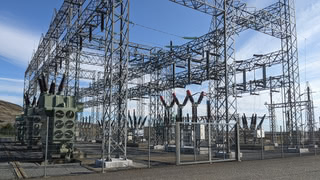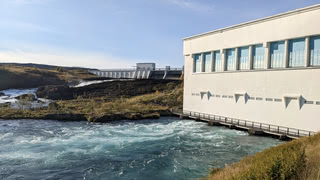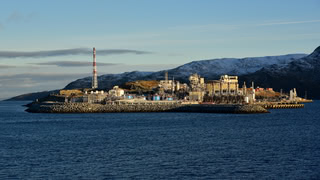Double Counting and other problems with Green Electricity Certificates
Double counting of green energy had recently led to a suspension of renewable electricity certificates from Iceland. Now they can be exported again – even though the problems are not solved. But that is not the only problem with renewable electricity certificates.

Within the EU and other European countries that are members of the EEA, so-called guarantees of origin allow the trade of electricity properties independently of the electricity itself. These renewable electricity certificates are the basis of green electricity tariffs where customers can buy 100% renewable electricity for themselves. This system can and does lead to problems of double counting, meaning that the same renewable electricity is sold twice.
This can be best understood by looking at the example of Iceland. The country uses almost 100% renewable electricity from hydropower and geothermal energy. Iceland "exports" most of its renewable electricity through guarantees of origin. There is no physical export of energy happening, as Iceland has an isolated electricity grid, but the regulations still allow that.
At the same time, energy-intensive companies within Iceland, primarily aluminium producers, that consume hydropower and geothermal energy directly claim that they are powered by 100% renewable electricity. The same renewable electricity is counted twice. As I learned later, similar issues exist within Norway.
I had described this situation in more detail in a previous newsletter, and my reporting had at least some effect: The Association of Issuing Bodies (AIB), which is an umbrella organization of authorities issuing these certificates in various European countries, had decided to suspend exports of guarantees of origin from Iceland. However, that decision only lasted for about a month.
Exports can continue even though "the situation is not yet resolved"
AIB has now decided that Iceland can export guarantees of origins again – although "the situation is not yet resolved," as AIB admits. According to the press release, Landsnet, the Icelandic certificate issuing body, is "well on its way to fulfill the rectification order, and the Icelandic stakeholders are stepping up their game to guarantee the reliability and credibility of the system."
Therefore, AIB allows double counting renewable electricity for the time being, although it promises to revisit the situation.
But double counting is not the only problem of guarantees of origin and similar renewable certification systems (in the United States, a similar system exists called RECS). I talked to scientists who have been critical of these systems for many years.
Matthew Brander from the University of Edinburgh has published multiple scientific papers on what is called market-based accounting of renewable electricity. He collects a list of links to scientific papers and other resources on his web page.
No grid connection between Iceland and continental Europe
One issue Brander highlights is the issue of deliverability. Renewable electricity certificates allow trading the renewable property of electricity independent of any actual connection between the generation and consumption of the electricity. This is quite obvious in the Icelandic example: Iceland is an island with no electricity grid connection to any other country. Sill, electricity suppliers in continental Europe can sell renewable electricity based on certificates from Iceland.
There is also no temporal connection between generation and consumption. A consumer may use electricity on a cloudy winter day that is compensated with a certificate from a solar farm running during the summer.
The other issue Brander highlights is additionality, which is probably the most controversial. It ultimately comes down to a fundamental question: Do these certificates help build more renewable energy generation, and do they help with the energy transition?
Often guarantees of origin are issued for power plants that existed even before this system was created. The vast bulk of guarantees of origin come from existing hydropower plants in Norway. This does not lead to any new renewable energy generation being built. Therefore, there is no additionality. "There is no point in buying guarantees of origin if all you are doing is shuffling ownership," Brander tells me.
But couldn't there still be an effect supporting new renewable energy generation? At least nobody has been able to show that such an effect exists. "At the moment, there is no empirical evidence to show that the certificate market does drive new renewables," Brander says.
Certificate systems without additionality can even have negative effects on emission reduction efforts. In one of his research papers, Brander gives an example: Imagine two companies that both want to improve their carbon footprint and have some money to invest. One company invests that money into more efficient use of electricity and reduces its electricity consumption. The other company invests money into renewable electricity certificates for its electricity.
Nominally, the second company can now claim that it eliminated emissions from its electricity use. But factually, it is just buying certificates with no emission reduction impact. On the other hand, the first company still nominally has emissions from its electricity use, but they have been lowered with real impact.
The existing system of guarantees of origin, which is regulated by the EU's renewable energy directive (RED), does not consider any of these issues. However, the European Commission appears very well aware of these problems.
EU: Additionality is important, but only for Hydrogen
The production of hydrogen with renewable electricity plays a significant role in the EU's decarbonization plans, and green hydrogen producers can expect generous subsidies in the coming years. But when producing green hydrogen, how renewable electricity is accounted for is important.
The current plans of the European Commission are that for green hydrogen, they want to address all the issues just highlighted: Additionality, deliverability, and temporal matching. While there is still a lot of debate on how to evaluate additionality and if the proposed rules sufficiently do that, there is a clear recognition that these issues are important.
Which leads to an obvious question: If these rules apply to green hydrogen production, why should they not apply to renewable electricity generation and the existing system of guarantees of origin? I have asked Henryk Dam, responsible for the renewable energy directive within the European Commission, this question – I have not received an answer.
From a consumer protection perspective, another issue with guarantees of origin is worth highlighting. Last year, electricity prices in Europe were raised significantly due to the Ukraine war and declining gas imports from Russia. Many customers of renewable electricity tariffs were surprised to learn that these price increases affected them just as much – even though reduced gas imports from Russia should not raise costs for renewable energy generation.
And the underlying reason is that people are not really buying renewable electricity with these tariffs. They are buying normal, "gray" or mixed electricity and they are buying guarantees of origin on top.
Another issue I experienced while researching this topic is a lack of transparency. The data published about the guarantees of origin market is very limited. It is not possible for customers or independent observers to find out which power plant operators sell their certificates to which electricity providers. The only data published by AIB are aggregated numbers for countries.
In the Icelandic example, that data was enough to figure out that double counting is happening. But that was only possible because a small number of energy-intensive consumers largely dominates the Icelandic electricity market.
AIB, an organization with a dubious track record
Finally, it is worth talking about the role of AIB, the organization managing the guarantees of origin system for most member countries on a European level. But what is its role? AIB appears to be a mixture of a supervising body and a lobbying organization for the existing guarantees of origin system. AIB is, for example, very clear in its communication that it is opposed to introducing any additionality requirement for guarantees of origin. (I have asked AIB in which role they see themselves, but they have not answered.)
This conflicting role may explain why AIB is reluctant to act even on the most obvious issues like double counting. Its latest press release states: "AIB's mission has always been to guarantee the origin of renewable energy, thereby preventing any double counting of the attributes of the same unit of energy." AIB had admitted to me that they had known about double counting in Iceland before I made it public, and they must have also known about the issues in Norway. So this statement is quite remarkable. (AIB has not answered questions about the issues in Norway.)
Currently, AIB is pushing itself as an entity not just for the certification of renewable electricity but also for other areas like green hydrogen and other renewable gases. Given AIB's dubious track record in supervising the renewable electricity market, this is a reason for concern.
Update: Further development of this issue is covered in the article The Trouble with European Green Electricity Certificates (Dec 15 2023).
Guarantees of Origin have been a recurring topic here, you can find an overview and links to all articles here. Documents relevant to this story can be found in the document archive about Guarantees of Origin.
Author: Hanno Böck
Brief
-
Bioenergy with carbon capture and storage (BECCS) is a potential option for negative emissions, but both technologies are controversial. The Danish energy company Ørsted plans to ship carbon emissions from two of its biomass-fired power plants to the Northern Lights storage site in Norway. I talked to the Danish environmental group NOAH and covered it for Fathom World.
-
Hy2gen announced plans to build an 800-megawatt renewable ammonia plant in Finland.
-
India will not start building any new coal-fired power plants for the next five years and will instead focus on renewable energy. That does not mean India will quit coal any time soon, but it is nevertheless a positive sign. It seems unlikely that five years from now, with renewables only getting cheaper, India will start building coal-fired power plants again.



